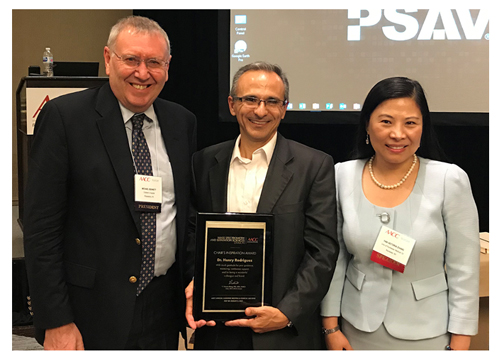New KRAS Antibodies Available
Researchers estimate that approximately 30% of all human cancers are driven by RAS oncogenes. Mutated RAS genes are responsible for making RAS proteins that support cancer development. While anti-RAS therapies may have potential clinical benefit, researchers yet do not understand how the four RAS protein isoforms, KRAS4A, KRAS4B, HRAS, and NRAS, drive malignant phenotypes. Well-characterized and defined reagents like antibodies are central to reproducibility in biomedical research and necessary for future RAS studies.

 Dr. Henry Rodriguez, director of the Office of Cancer Clinical Proteomics Research, has been recognized as the recipient of the Chair’s Inspirational Award by the Mass Spectrometry and Separation Sciences for Laboratory Medicine Division (MSSS), American Association for Clinical Chemistry (AACC).
Dr. Henry Rodriguez, director of the Office of Cancer Clinical Proteomics Research, has been recognized as the recipient of the Chair’s Inspirational Award by the Mass Spectrometry and Separation Sciences for Laboratory Medicine Division (MSSS), American Association for Clinical Chemistry (AACC).